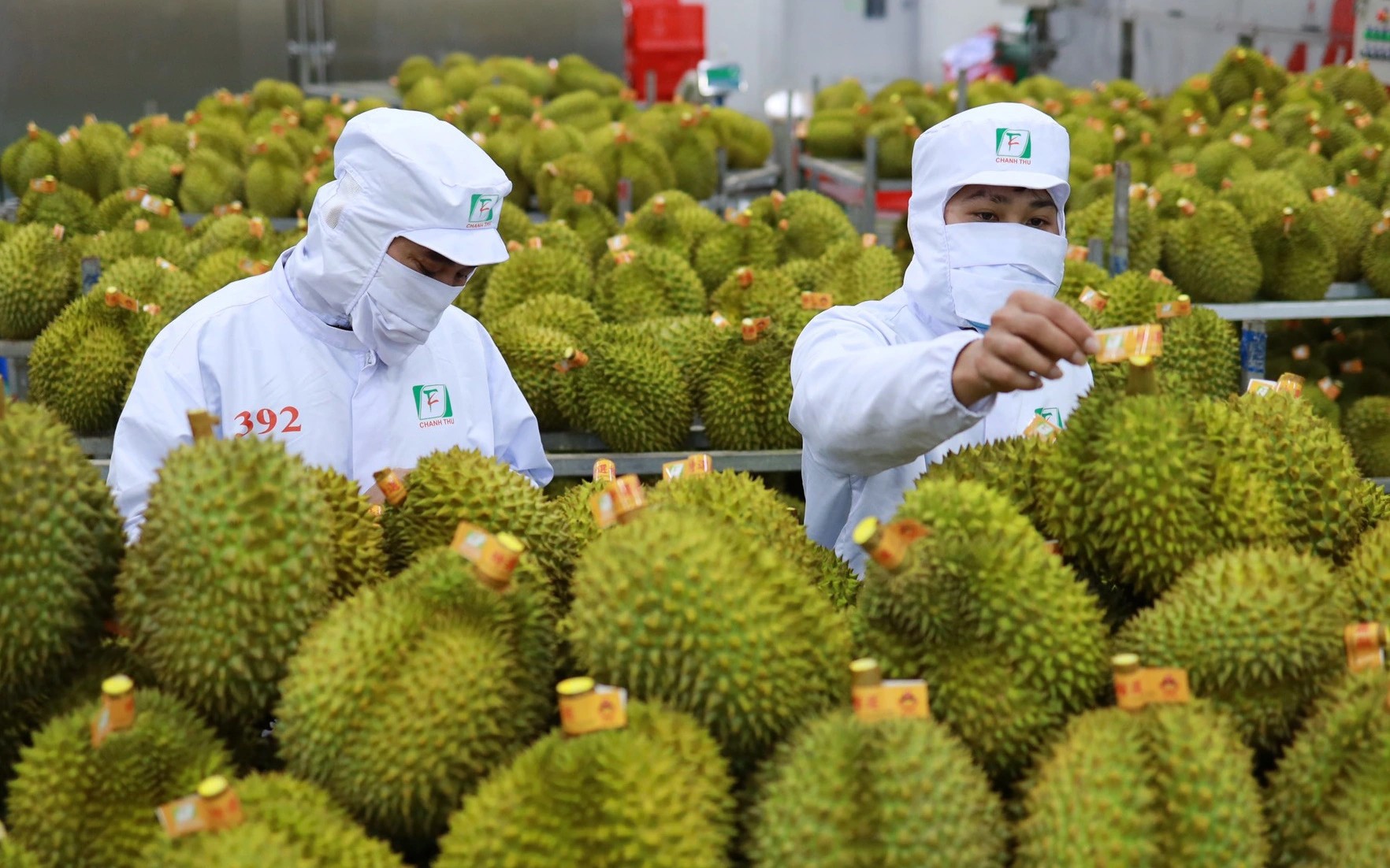For the first time, Vietnamese durian exported to the EU was subject to inspection for pesticide residue at the border gate with a frequency of 10%.
The Vietnam Trade Office in Belgium and the EU informed that on January 17, 2024, the EU published in the Official Gazette the Regulations implementing Regulation (EU) 2024/286 signed on January 16, 2024, amending the Implementing Regulations ( EU) 2019/1793 on the temporary strengthening of official controls and emergency measures governing imports into the Union of certain goods from certain third countries implementing the Regulation (EU) 2017/625 and (EC) No 178/2002 of the European Parliament and of the Council.
Vietnamese durian must be tested for pesticide residue at EU border gates with a frequency of 10%
According to the newly amended regulations, Vietnamese products entering the EU that will be subject to border gate supervision are bell peppers, instant noodles and durian with inspection frequencies of 50%, 20% and 10%, respectively. Thus, this is the first time Vietnamese durian exported to the EU has been subject to pesticide residue inspection at the border gate with a frequency of 10%.
Also in this Regulation, okra and dragon fruit are still in Appendix II (additionally requiring a quality certificate from Vietnam) with inspection frequencies of 50% and 20%, respectively, at EU border gates.
The regulations take effect 20 days after the date of publication in the official gazette.

The EU regularly warns about pesticide residues on imported agricultural products
2023 will see durian surpass dragon fruit, becoming Vietnam’s fruit and vegetable product with the highest export turnover. It is estimated that durian exports in 2023 will reach 2.3 billion USD, increasing 5 times compared to 2022 and increasing 10 times compared to 2021.
Regarding markets, Vietnam’s fresh durian is currently exported to 24 markets, frozen durian is also exported to 23 markets. Besides the largest market, China, FTA partner markets all have great potential to promote Vietnam’s durian exports.
For the EU market, the implementation of the Free Trade Agreement between Vietnam and the EU (EVFTA) creates competitive advantages, increases output, and diversifies export products, especially world agricultural products. strong.
However, besides market and tariff advantages, the EU has very strict regulations on product quality. One of the important criteria in exporting agricultural products to the EU market is that the product must be within the maximum allowable pesticide residue threshold, with chemical residues below the prescribed level.
According to statistics from the Plant Protection Department (Ministry of Agriculture and Rural Development), in just 10 months of 2023, the EU has issued 3,900 warnings to all countries exporting agricultural products to the EU market. Of which, Vietnam has nearly 60 warnings with 40% of warnings on fruits and vegetables (accounting for 60% of warnings) related to the problem of pesticide residues.
To protect consumer health, all EU member states have established a list of permitted pesticides and maximum residue levels allowed on food. Notably, many pesticides used in Vietnam are banned in the EU.
Besides, regulations on pesticides in the EU are tending to change and update faster. Many harmful objects on the EU quarantine list are also present in Vietnam. This is something Vietnamese businesses exporting agricultural products to the EU need to pay close attention to, if they do not want to suffer major losses to their production and business activities.
